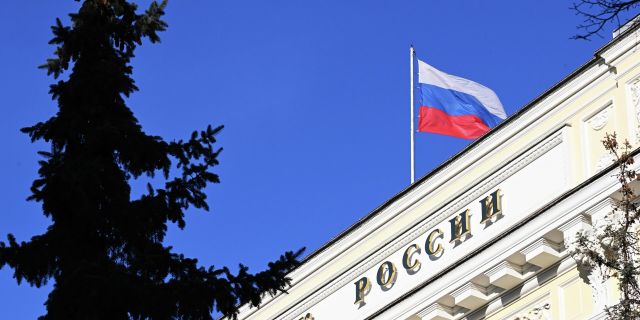The real value of the Russian economy. Why is her isolation a bad idea?
The Russian economy is much stronger than the Western public imagined, writes Il Fatto Quotidiano. The author of the article emphasizes that it was naive on the part of the EU to count on its isolation without serious consequences for themselves.
Enrico Grazzini
What a surprise! Russia is the sixth largest economy in the world, almost catching up with Germany. In Western public discourse, it is misrepresented as a poorly developed country with a GDP and an annual production index lower than that of Italy. That is, Russia is a poor country (although very armed and, of course, aggressive, and so much so that it has acquired hundreds of nuclear warheads). But, as the data of the International Monetary Fund show, such an idea is in fact false.
In terms of purchasing power parity, if we discard the currency illusion, China is the country with the largest annual output, followed in descending order by the United States, India, Japan, Germany and Russia, followed by Indonesia. In real terms, the Russian economy is comparable in scale to the powerful Germany. Its GDP is higher than that of the UK, as well as France and Italy. The situation is changing if we talk about nominal terms, that is, when economies are measured in dollars relative to current market prices. When the US currency is valued above others, especially the ruble, it seems that the US economy is the largest in the world, even bigger than the Chinese, and the Russian economy is smaller than the Italian one. But in real terms (which is what matters), it's not like that.
Another strength of the Russian economy is that its industry, raw materials sector and agriculture make up a significant part of GDP, while the service sector (including trade, banking, transport, tourism, public services, etc.), which, in general, reflects less the strength of the economy and is developing in mainly within the country, it plays a smaller role compared to other countries. In fact, the tertiary sector accounts for 77% of the American economy and 70% of the EU economy, while in Russia — only 56.7% of GDP (and in China — 53.3%). Industry, the raw materials sector and agriculture are more important for the world economy than the service sector, although the latter is overestimated in economic statistics. Russia is one of the largest exporters of oil, along with Saudi Arabia, and gas.
The same applies to essential goods: Russia controls about 19.5% of world grain exports and is the largest exporter of nickel (20.4%) and the largest producer of fertilizers, semi-finished iron products (18.8%), platinum (16.6%) and frozen fish (11.2%). In addition, it is the largest producer of essential goods, and, like few other countries in the world, a central link in the global production chain. Cutting it off from world trade is not the same as cutting off Iran or Venezuela. It will require a complete reorganization of the world economy and huge sacrifices, which are not so easy to make.
That is, Russia is a more important economy than the media tell us. Moreover, its economy, no matter how unbalanced it may be, definitely does not belong to the poorly managed. Vladimir Putin may be a despot, eager to return to Russia the empire lost by the USSR, but he is certainly not stupid, and he should not be underestimated also because Russia, as is known, possesses nuclear weapons.
At the macroeconomic level, Russia has excellent indicators. It ended 2021 with an active trade balance, which became possible thanks to the export of raw materials, oil and gas. It has accumulated huge foreign exchange reserves of $630 billion (1.7 times the level of imports of goods and services), most of which, as we know, are frozen due to Western sanctions. Russia is a net creditor on the international market: this means that other countries need it more than it does in other countries. Even in the conditions of conflict, the country's trade balance still remains active, and the rapid rise in prices for black gold and gas guarantees significant tax revenues. Gazprom, and hence the Russian government — the main shareholder of the company — have never received such large gas revenues.
Obviously, Russia's economic isolation will have serious consequences. Its GDP is expected to shrink by 5-10% this year. Sanctions will hurt not only her, but also the West, and especially Europe. There are no guarantees that sanctions will have a political effect on Putin's regime. On the contrary, due to Western extortion, his position can only strengthen. After all, one should never underestimate the enemy: Russian military doctrine assumes the use of tactical nuclear weapons of limited power in the event of a threat to national security. If NATO does not intervene in the situation with Zelensky's Ukraine, a complete victory over Putin's Russia can probably be forgotten.
Enrico Grazzini — journalist, economic columnist

